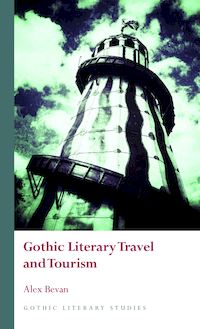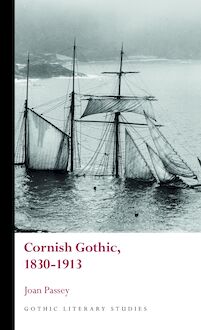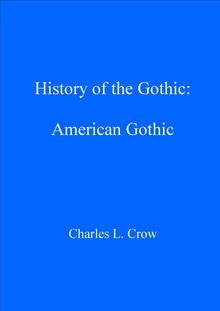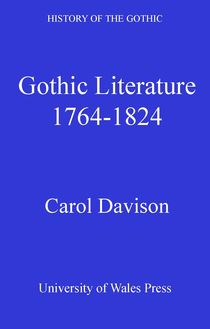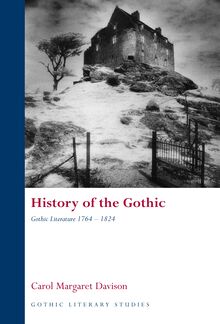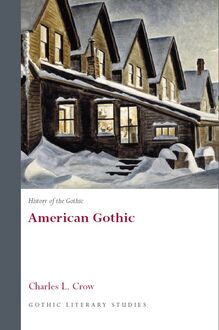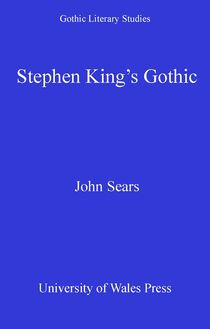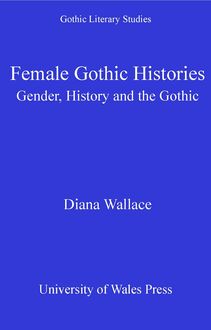-
 Univers
Univers
-
 Ebooks
Ebooks
-
 Livres audio
Livres audio
-
 Presse
Presse
-
 Podcasts
Podcasts
-
 BD
BD
-
 Documents
Documents
-
- Cours
- Révisions
- Ressources pédagogiques
- Sciences de l’éducation
- Manuels scolaires
- Langues
- Travaux de classe
- Annales de BEP
- Etudes supérieures
- Maternelle et primaire
- Fiches de lecture
- Orientation scolaire
- Méthodologie
- Corrigés de devoir
- Annales d’examens et concours
- Annales du bac
- Annales du brevet
- Rapports de stage
La lecture à portée de main
Vous pourrez modifier la taille du texte de cet ouvrage
Découvre YouScribe en t'inscrivant gratuitement
Je m'inscrisDécouvre YouScribe en t'inscrivant gratuitement
Je m'inscrisEn savoir plus
Vous pourrez modifier la taille du texte de cet ouvrage
En savoir plus

Description
Sujets
Informations
| Publié par | University of Wales Press |
| Date de parution | 30 mars 2013 |
| Nombre de lectures | 1 |
| EAN13 | 9781783160310 |
| Langue | English |
Informations légales : prix de location à la page 0,2850€. Cette information est donnée uniquement à titre indicatif conformément à la législation en vigueur.
Extrait
FEMALE GOTHIC HISTORIES
SERIES PREFACE
Gothic Literary Studies is dedicated to publishing groundbreaking scholarship on Gothic in literature and film. The Gothic, which has been subjected to a variety of critical and theoretical approaches, is a form which plays an important role in our understanding of literary, intellectual and cultural histories. The series seeks to promote challenging and innovative approaches to Gothic which question any aspect of the Gothic tradition or perceived critical orthodoxy. Volumes in the series explore how issues such as gender, religion, nation and sexuality have shaped our view of the Gothic tradition. Both academically rigorous and informed by the latest developments in critical theory, the series provides an important focus for scholarly developments in Gothic studies, literary studies, cultural studies and critical theory. The series will be of interest to students of all levels and to scholars and teachers of the Gothic and literary and cultural histories.
SERIES EDITORS
Andrew Smith, University of Sheffield Benjamin F. Fisher, University of Mississippi
EDITORIAL BOARD
Kent Ljungquist, Worcester Polytechnic Institute Massachusetts Richard Fusco, St Joseph’s University, Philadelphia David Punter, University of Bristol Chris Baldick, University of London Angela Wright, University of Sheffield Jerrold E. Hogle, University of Arizona
Female Gothic Histories
Gender, History and the Gothic
Diana Wallace
UNIVERSITY OF WALES PRESS CARDIFF 2013 -->
© Diana Wallace, 2013
All rights reserved. No part of this book may be reproduced in any material form (including photocopying or storing it in any medium by electronic means and whether or not transiently or incidentally to some other use of this publication) without the written permission of the copyright owner. Applications for the copyright owner’s written permission to reproduce any part of this publication should be addressed to the University of Wales Press, 10 Columbus Walk, Brigantine Place, Cardiff CF10 4UP.
www.uwp.co. uk
British Library CIP Data A catalogue record for this book is available from the British Library.
ISBN 978-0-7083-2574-2 e-ISBN 978-1-78316-031-0
The right of Diana Wallace to be identified as author of this work has been asserted in accordance with sections 77 and 79 of the Copyright, Designs and Patents Act 1988.
Typeset in Wales by Eira Fenn Gaunt, Cardiff Printed by CPI Antony Rowe, Chippenham, Wiltshire
C ONTENTS
Preface
Acknowledgements
1 Introduction
2 The Murder of the Mother: Sophia Lee’s The Recess (1783−5)
3 Be-witched and Ghosted: Elizabeth Gaskell’s Gothic Historical Tales
4 Puzzling over the Past: Vernon Lee’s Fantastic Stories
5 Displacing the Past: Daphne du Maurier and the Modern Gothic
6 Queer as History: Sarah Waters’s Gothic Historical Novels
Afterword
Notes
Bibliography
P REFACE
We need, as I argue in this book, a new theory of historical fiction and a meta-narrative of its development which takes more seriously its intimate relationship with the Gothic. Such an account would allow us more accurately to assess the contribution women writers have made to the genre and, conversely, its central importance to thinking about women and history. I use the term ‘historical fiction’ deliberately here, rather than ‘historical novel’, because looking at short fiction problematises many of the assumptions frequently made about both historical novels and the Gothic.
As I argued in The Woman’s Historical Novel: British Women Writers , 1900−2000 (2005), women’s historical fiction has its roots in the Gothic novel which precedes the work of Sir Walter Scott. Despite evidence to the contrary, Scott is still commonly positioned as the progenitor of the historical novel, even in such recent texts as Jerome de Groot’s The Historical Novel (2010). Female Gothic Histories extends the project of my earlier book in order to offer an alternative account of historical fiction as it has been developed and used by women. It traces a female genealogy of Gothic historical fiction from Sophia Lee’s The Recess (1783−5) in the late eighteenth century through the short fictions of Elizabeth Gaskell and Vernon Lee, to the work of Daphne du Maurier which inspired the ‘modern Gothics’ of the 1960s, and finally to its most recent manifestation in the hugely popular novels of Sarah Waters in the twenty-first century.
Such a long time span – covering two and a half centuries – offers both benefits and problems. On the benefit side it provides a slice of the ‘long history’ which historians such as Gerda Lerner and Mary Beard have suggested is necessary if we are to understand what Beard called ‘woman as force in history’. 1 Beard suggests in particular the need to go back beyond nineteenth-century ideologies which so often shape our thinking about women. Indeed, I would argue that one of the most valuable aspects of historical fiction is precisely its ability to direct our vision into the past, and to enable an imaginative engagement with other possibilities.
On the other hand, such a long view creates real problems in an age when academics are increasingly specialised. Given that my own period specialism is the early twentieth century, it seems a dangerous thing to strike back as far as the late eighteenth century. It is, however, both important and invigorating to do such work. This book is therefore indebted to the important work done by other feminist literary critics on the beginnings of the historical novel, the national tale and the Gothic in the late eighteenth and early nineteenth century. Perhaps most importantly it builds on Ellen Moers’s eclectic and innovative Literary Women (1976), written during the early years of ‘women’s liberation’. 2 It was Moers who first coined the term ‘Female Gothic’ and, although she did not discuss historical fiction as such, she was intensely aware of the importance of history: ‘If ever there was a time which teaches that one must know the history of women to understand the history of literature’, she wrote, ‘it is now.’ 3 The same is still true today and, despite its now well-documented limitations and omissions, her ground-breaking work remains an important inspiration.
Notes to the Preface
1 Mary R. Beard, Woman as Force in History (New York: Macmillan, 1946).
2 Ellen Moers, Literary Women (1976; London: The Women’s Press, 1978).
3 Ibid., p. xiii.
A CKNOWLEDGEMENTS
This book has been a long time in the writing and I would like to thank several colleagues and friends for their support and assistance. Jane Aaron read most of the work in progress and has been a huge source of support throughout. I am indebted to Jeni Williams, who gave astute and tactful feedback on several chapters, and to Gavin Edwards, Marion Shaw and Kevin Mills, who read individual chapters and offered sage advice. I’d like to thank Meredith Miller for a useful conversation about the ways in which the Gothic can be seen as a kind of theory; Angela Wright for allowing me to see her work in progress on Sophia Lee’s translation of Varbeck ; Jonathan Durrant for lending me books on witches; Rebecca Moore for conversations about Daphne du Maurier; Linda Graves, Lesley Hargreaves and the Inter-library loan team at the University of Glamorgan for their patience and persistence in obtaining material; and Rhiannon Sargent for support in the final stages. My students on The Female Gothic and Gothic Histories modules at Glamorgan University have been another source of inspiration. Thank you to Andrew Smith for inviting me to contribute this volume to the series; to Sarah Lewis, who has been an endlessly patient editor in the face of repeated delays; and to UWP’s anonymous reader for her astute comments. I’d also like to thank the postgraduates who organised the PGCWWN Theory and Practice Networking day at Leicester University in October 2010, and those who attended my workshop on historical fiction.
I am grateful to Sarah Waters and her literary agents, Greene Heaton, for kind permission to quote extracts from her novels, Affinity © 1999, Fingersmith © 2002 and The Little Stranger © 2009; to the Curtis Brown Group Ltd for kind permission to quote from the novels of Daphne du Maurier: Jamaica Inn © 1936, Rebecca © 1938, The King’s General © 1946, My Cousin Rachel © 1951, Myself When Young © 1977, The Rebecca Notebook: And Other Memories © 1981; and to the Curtis Brown Group Ltd, London on behalf of the Chichester Partnership, for kind permission to quote from the Introduction to Northanger Abbey by Jane Austen © 1948.
Finally, my family have, as ever, been my biggest source of support and encouragement, and I would like to thank my parents, Anne and Nigel Wallace, my sisters, Linda Schjoett and Dawn Percival, and, most of all, Jarlath and Seán.
For Jarlath and Seán
1
Introduction
The history of England is the history of the male line, not of the female.
Virginia Woolf, ‘Women and Fiction’ (1929) 1
If the rationale of History is ultimately to remind us of everything that has happened and to take it into account, we must make the interpretation of the forgetting of female ancestries part of History and re-establish its economy.
Luce Irigaray, Thinking the Difference (1989) 2
From the late eighteenth century, women writers, aware of their exclusion from traditional historical narratives, have used Gothic historical fiction as a mode of historiography which can simultaneously reinsert them into history and symbolise their exclusion. If the Gothic with its blatant flouting of realism is always already, as I will suggest here, a kind of metafiction avant la lettre , then Gothic historical fiction, the subject of my study, can be seen as a kind of metahistory, a way of theorising or producing a philosophy of history. 3 In the hands of women writers, Gothic historical fiction has offered a way of ‘interpreting’, or symbolising, what Luce Irigaray call
-
 Univers
Univers
-
 Ebooks
Ebooks
-
 Livres audio
Livres audio
-
 Presse
Presse
-
 Podcasts
Podcasts
-
 BD
BD
-
 Documents
Documents
-
Jeunesse
-
Littérature
-
Ressources professionnelles
-
Santé et bien-être
-
Savoirs
-
Education
-
Loisirs et hobbies
-
Art, musique et cinéma
-
Actualité et débat de société
-
Jeunesse
-
Littérature
-
Ressources professionnelles
-
Santé et bien-être
-
Savoirs
-
Education
-
Loisirs et hobbies
-
Art, musique et cinéma
-
Actualité et débat de société
-
Actualités
-
Lifestyle
-
Presse jeunesse
-
Presse professionnelle
-
Pratique
-
Presse sportive
-
Presse internationale
-
Culture & Médias
-
Action et Aventures
-
Science-fiction et Fantasy
-
Société
-
Jeunesse
-
Littérature
-
Ressources professionnelles
-
Santé et bien-être
-
Savoirs
-
Education
-
Loisirs et hobbies
-
Art, musique et cinéma
-
Actualité et débat de société
- Cours
- Révisions
- Ressources pédagogiques
- Sciences de l’éducation
- Manuels scolaires
- Langues
- Travaux de classe
- Annales de BEP
- Etudes supérieures
- Maternelle et primaire
- Fiches de lecture
- Orientation scolaire
- Méthodologie
- Corrigés de devoir
- Annales d’examens et concours
- Annales du bac
- Annales du brevet
- Rapports de stage

